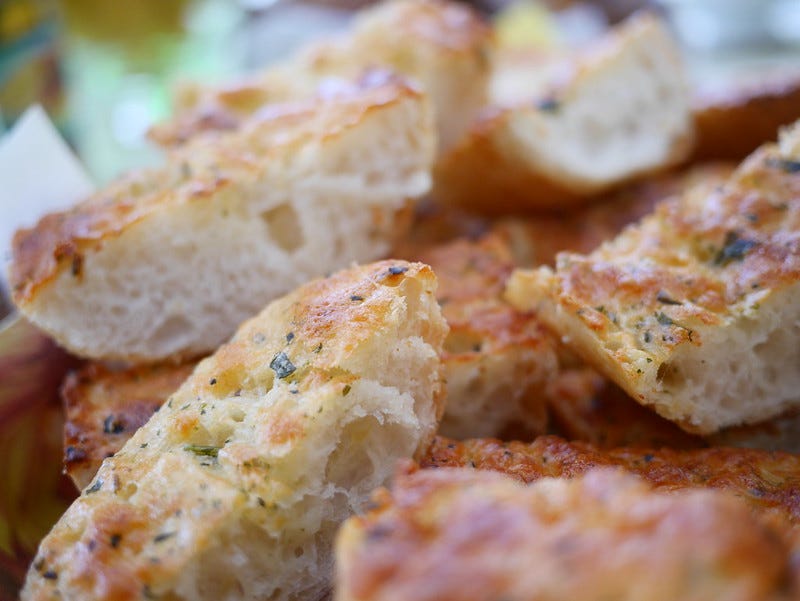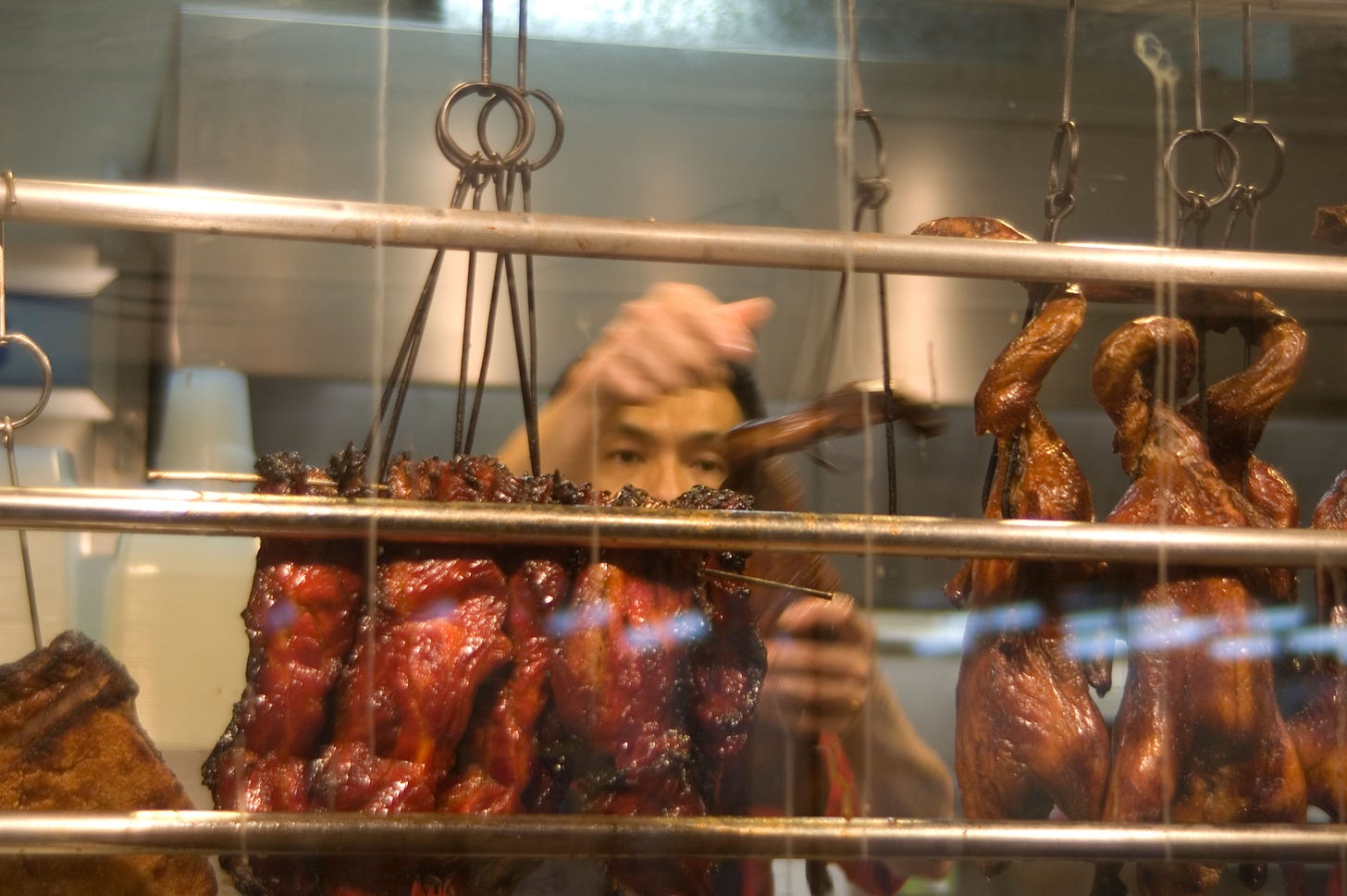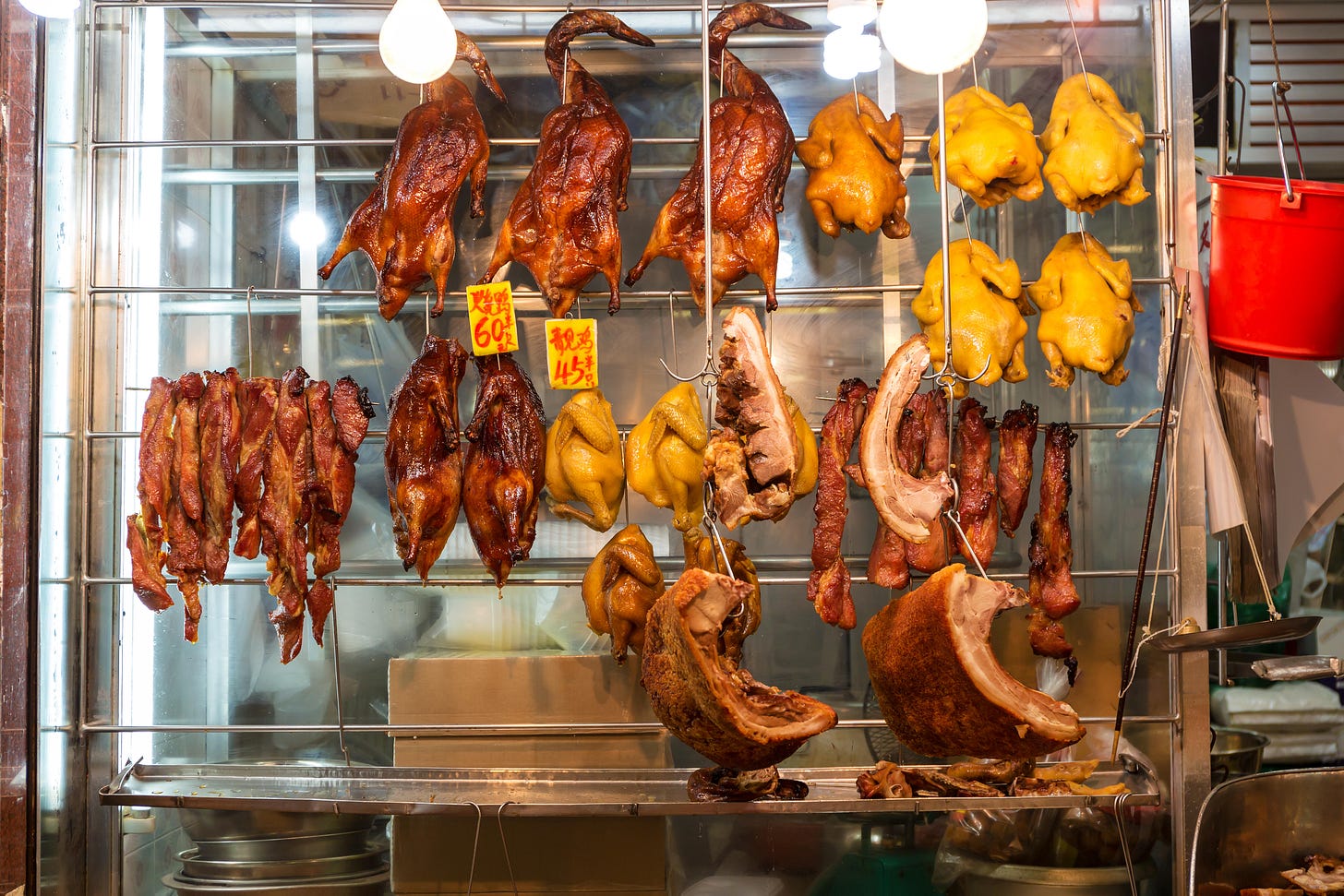Smart Mouth merch is on sale! Be Earth-friendly and use metal utensils for carryout! (Also it’s my birthday this week, and I’d love the gift of selling some of these sets.) You can buy it here.
If you enjoy the newsletter today, please forward it to someone who’d enjoy it, and tap the heart icon above, which will help me reach more readers. I appreciate your help, y’all!
Garlic Bread with Andrea Wallace
People have always had very strong, and sometimes very weird, opinions about garlic.
Listen to Smart Mouth: iTunes • Google Podcasts • Stitcher • Spotify • RadioPublic • TuneIn • Libsyn
When Vancouver’s Chinese Community Protested for Barbecue
The built-in advertising of glistening slabs of barbecued pork, whole chickens marinating in soy sauce, and golden-reddish-brown ducks hanging in windows draw eaters into meat shops in many Chinese communities. Vancouver has one of North America’s oldest Chinatowns, but in 1975, in a racially motivated move, health inspectors in this Canadian city shut down several Chinatown businesses selling barbecued meats.
“The public health people ran around with their thermometers sticking up the backsides of ducks and chickens,” recalls long-time Chinatown activist Shirley Chan. Vancouver’s health officer, Gerald Bonham, claimed that the shops were violating a bylaw that dictated meat products’ allowable temperatures: below 4.4°C (40°F) or above 60°C (140°F).
After Bonham ordered five Chinatown meat sellers to close, meat purveyors and their supporters took to Chinatown’s streets in protest. A merchants’ group collected more than 8,000 signatures opposing the government’s action against this long-popular cooking style that has roots in Hong Kong and southern China.
So what is it about barbecue that rallied the Chinese community? Lee Man, a founding judge of Vancouver’s Chinese Restaurant Awards, says that for many Chinese families, including his own, BBQ is a literal and figurative staple. “It touches every important part of a Chinese person’s life, from daily dinner to family get-togethers to funeral offerings.”
As a boy in Vancouver, Man went to Chinatown for barbecue every weekend with his parents, who had emigrated from Hong Kong in 1968. For special occasions, he says, “We’d get a whole chicken or duck to represent having the whole family together. It’s celebratory. It shows plenty and prosperity.”
But despite a 1975 compromise that allowed Vancouver’s BBQ sellers to reopen, federal inspectors began claiming that meat shops in Chinese communities across Canada were violating the national Food and Drug Act.
Supporters of the meat merchants fought back again, organizing the Committee to Save Chinese Barbecue Products. In 1978, the group sent a delegation to Canada’s national parliament in Ottawa, including a Vancouver BBQ master dressed in his white apron and chef’s hat. “We served roast pork and barbecued pork in the halls of parliament,” says Chan. The legislators, and Prime Minister Pierre Trudeau, reportedly devoured the meats with gusto.
Shortly afterwards, the government revised its regulations, moving away from strict temperature controls to standards for acceptable bacterial levels. Chinese BBQ shops throughout Canada were back in business.
“Vancouver would be a poorer community without Chinese barbecue,” says Chan. “We had to gain the respect of health officers in order to preserve our traditional ways.”
Today, Chinese BBQ shops thrive across metro Vancouver, although few remain in the city-center Chinatown. In 2017, Carol Lee, a Vancouver entrepreneur and co-founder of the Vancouver Chinatown Foundation, opened Chinatown BBQ, a modern incarnation of a classic Cantonese-style meat shop. “Food is a great way to build community,” says Lee. “My overall plan has been to help revitalize Chinatown.”
The menu at Chinatown BBQ is simple – roast or barbecued pork, soy sauce or poached chicken, barbecued duck, plus beef brisket curry, and a few side dishes – and it’s carrying on the Chinatown tradition that misguided 1970s regulators attempted to quash.🍗
*I apologize that the newsletter has been sporadic. My dog, Matilda, was ailing and she died last week. I’m still feeling wrecked, but I can focus on work now. Here’s a picture of my sweet girl after a haircut. 💗
This newsletter is edited by Katherine Spiers, host of the podcast Smart Mouth.
A TableCakes Production.
Want to contribute? Here are the submission guidelines.








So sorry to hear <3 Matilda looks like such a sweetie in that picture.
💔💔💔